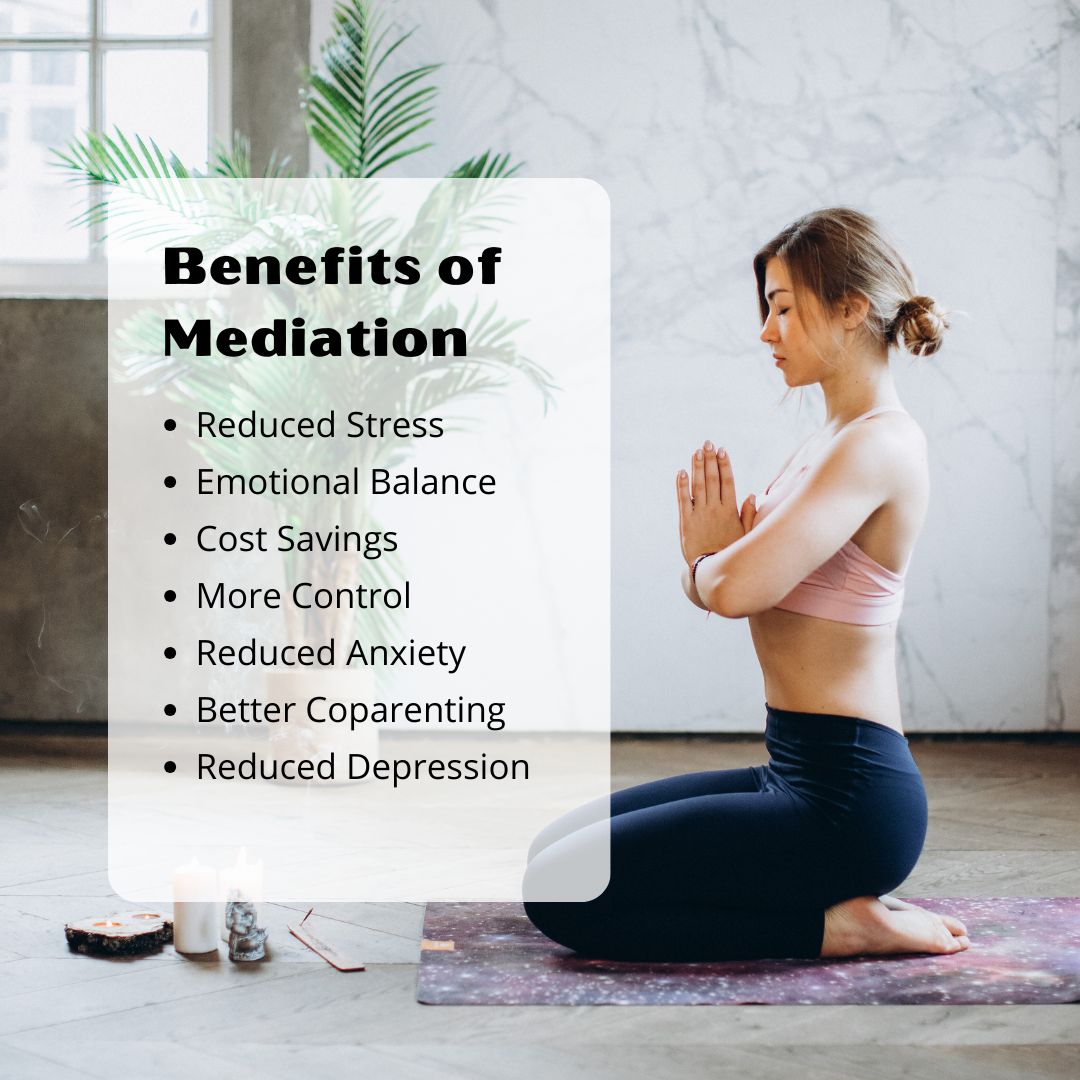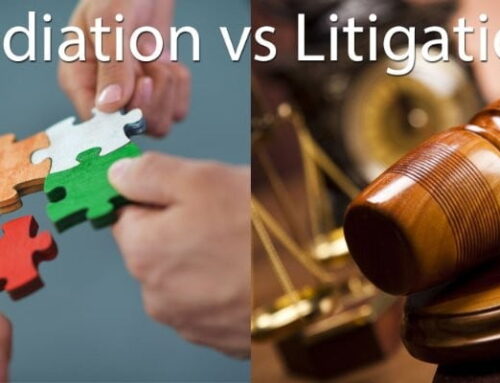
Out of Court Divorce Settlement in California
Getting a divorce is never an easy process, but in California, couples have the option to choose an out-of-court divorce settlement. This alternative approach offers numerous benefits that can make the dissolution of a marriage less stressful and more amicable. In this article, we will look at the benefits of choosing California divorce mediation for an out-of-court divorce settlement in California.
What is an Out of Court Settlement for Divorce Mediation?
Ever wonder what divorce mediation really is? It’s like a friendly chat over coffee (minus the caffeine jitters) where both parties come together to figure things out—confidentially and peacefully!
Instead of battling in court, the mediator facilitates open and productive discussions, helping both parties negotiate fair and mutually agreeable terms. The settlement reached is then formalized into a Marital Settlement Agreement (MSA), which can be submitted to the court for approval without requiring either spouse to appear in front of a judge.
What is the Process for Out-of-Court Divorce Settlements?
Mediation is most commonly the preferred and most effective process for achieving an out-of-court divorce settlement in California. A good San Diego family mediator helps couples reach fair agreements without the stress of courtroom drama.
Mediation services are akin to having a referee at a friendly game instead of a boxing match! It allows couples to remain in control of the outcome while avoiding the adversarial nature of courtroom litigation. Choosing an out-of-court divorce settlement in California is key to saving your time and money.
Scott Levin is here to help turn down the chaos and turn up the clarity. Ready to get started? Message Scott today and let him guide you through how mediation can be the right choice for you!
What are the Benefits of Settling Divorce Out of Court?
While your first instinct may be to want to take your soon-to-be-ex to court, most often this decision will not help you get the most out of your divorce. As we explain here, there are a lot of proven reasons for why you are best off avoiding going to court.
Time Savings is an Advantage of Settling Divorce Out of Court in California
Traditional court processes are known to take a long time. They often last for months or even years. This is due to the large number of cases in the judicial system.
In contrast, out-of-court settlements allow couples to resolve their disputes more efficiently. By engaging in negotiation or mediation, couples can expedite the process, leading to a quicker resolution of their divorce.
Cost Savings is a Huge Benefit of Keeping Your Divorce Out of Court
The cost savings in choosing an out-of-court settlement are immense. Engaging in litigation can be exorbitantly expensive, with costs accumulating through attorney fees, court fees, and other related expenses.
By opting for California mediation or collaborative divorce, couples can significantly reduce their overall expenses.
An out-of-court settlement can help prevent the financial fallout commonly associated with drawn-out litigation. When couples fight in court, they may not only incur substantial legal fees but also face the risk of spending the marital assets they otherwise would divide without a costly legal battle.
In contrast, out-of-court settlements allow couples to allocate their resources more wisely, preserving their financial stability and ensuring that they can support themselves post-divorce.
Out of Court Divorce Mediation Privacy Benefits
 Another compelling benefit of choosing an out-of-court divorce settlement is the enhanced privacy and confidentiality it affords couples. Out-of-court settlements allow for confidential negotiations to take place in a confidential setting which keeps your sensitive information out of the public eye.
Another compelling benefit of choosing an out-of-court divorce settlement is the enhanced privacy and confidentiality it affords couples. Out-of-court settlements allow for confidential negotiations to take place in a confidential setting which keeps your sensitive information out of the public eye.
Confidentiality in out-of-court settlements can also significantly benefit couples with children. Parents often want to protect their children’s privacy during a divorce. Mediating to negotiate out-of-court settlements maintain privacy that public court proceedings cannot provide.
Furthermore, the ability to keep sensitive issues private can lead to more honest and open communication between the parties. When couples feel secure that their discussions will remain confidential, they may be more inclined to express their true feelings and concerns.
This openness can facilitate more effective negotiation and problem-solving, ultimately resulting in a settlement that aligns with both parties’ needs and desires.
Gain Flexibility and Control Through California Out of Court Divorce Settlements
Flexibility and control are two fundamental aspects of out-of-court divorce settlements that set them apart from traditional litigation.
In a court setting, the outcomes are largely dictated by the judge, who may not fully understand the unique circumstances and needs of the couple. Conversely, an out-of-court settlement empowers couples to take charge of their divorce proceedings and tailor solutions to better fit their specific situations.
The flexibility inherent in out-of-court settlements allows couples to explore creative solutions that may not be available in court. For example, couples can negotiate terms that reflect their individual priorities, whether that means dividing assets in a way that preserves a family business or creating a child custody arrangement that accommodates each parent’s work schedule.
Additionally, having control over the process can significantly reduce stress and anxiety for both parties. The traditional court system can often feel adversarial and intimidating, leaving individuals feeling powerless as they navigate their divorce.
On the other hand, out-of-court settlements encourage a cooperative atmosphere where all parties can collaborate to discover solutions that benefit everyone. This spirit of cooperation not only increases the chances of a successful outcome but also fosters a sense of finality that is frequently hard to achieve in disputed court proceedings.
Your Children Benefit By Settling Divorce Before Court
Out-of-court settlements encourage collaboration and open dialogue, fostering an environment where both parties can express their needs and concerns without fear of confrontation. This cooperative approach can lead to more amicable outcomes, which is especially important for couples with children.
By working together to resolve differences, parents can model positive conflict resolution skills for their kids, helping to mitigate the emotional impact of the divorce. When parents are able to navigate their divorce without animosity, they are more likely to establish a co-parenting relationship that prioritizes their children’s well-being, providing a sense of stability amidst the changes.
A Quicker Process Helps Children
A less adversarial mediation process to reach out-of-court settlements can also lead to a quicker resolution. This expedited process can significantly alleviate the emotional toll that often accompanies prolonged divorce, allowing individuals to focus on healing and moving forward with their lives.
Ultimately, the collaborative spirit of out-of-court divorce settlements not only promotes healthier relationships between ex-spouses but also contributes to a more positive post-divorce experience for all involved.
Success Stories of Couples Who Chose Out of Court Divorce Settlements
Many couples have found success in opting for no court divorce mediation settlements, illustrating the potential benefits of this approach. One notable success story involves a couple who had been for more than twenty years and have four children. The case involved a lot of emotions and the couple looked to Scott to help find solutions for affordable mediation for divorce. Scott helped the couple set up a settlement to continue to co-own their home with mom living there with the children for the next five years. This solution protected the children by giving stability as the alternative would be for both parents to rent after selling which would eat away at their net worth while also making the kids feel less grounded and safe. Read the entire San Francisco divorce mediation case study here.
Contact San Diego Out of Court Divorce Mediation Expert
Scott Levin can help you navigate a friendly out of court divorce process in San Diego and throughout California. Contact us to learn how our expert mediator can facilitate a healthy no court California separation and divorce. Book a time with Scott to explore your out of court divorce consultation or call 858-255-1321.


















